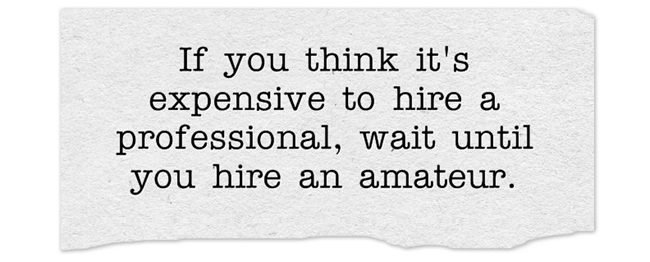This 333 exemption was somewhat of a barrier to entry into this business. In order to obtain one, it often cost many thousands of dollars in legal fees. It also required the UAS pilot to have an actual airplane pilot's license. The new rules will require that one become FAA-certified only for small UAS operations, which will involve a course and written test administered by the FAA. This is a really, really good thing because it will now create a standard by which all commercial UAS pilots must meet.
Everything about these new rules is wonderful. It gives us UAS operators much more freedom and eliminates many of the hassles that we had to deal with before, which involved reporting when and where we were going to fly at least 72 hours in advance, a visual observer, and technically no flights within 500 feet of any non-participating person or structure. These were unreasonable rules, and the FAA corrected them. Well done! (No more exemptions also means no more lawyers trying to make a quick buck on writing up 333 exemptions. One can only wonder how annoyed their customers are feeling now that their $3,000 exemption is now worthless!)
While the rules have changed for the better, one of the potentially negative side effects is that now there is a much lower barrier to entry. Anyone over the age of 16 will now be able to operate drones for hire. Overall, this is a positive thing - but just like anyone can be a "professional photographer," anyone can now buy a drone, setup a website, and immediately start selling their services.
"Drones" are easy to fly. Manufacturers such as DJI have created products that are so incredibly easy to use that a toddler in an open field will have no problem flying it around. These drones usually have some kind of camera on them, and so it doesn't take much to buy a drone, start flying it around, snap a couple cool pictures, and then think, "Hey, maybe I could start selling these? Maybe someone out there needs me to take photos of their house or event!"
Brand-new drone photographers who may like to employ the word "professional" are anything but. A "profession" is 'a paid occupation, especially one that involves prolonged training and a formal qualification.' Someone who just bought a drone and now sells their services has not gone through prolonged training. They might have the FAA certification to fly a drone, but there is no FAA certification for camerawork. Imagine a law that required one to pass a class in order to use a digital camera. Just because one can set the ISO on their camera does not mean they are a professional!
These people will lower their prices to attract jobs, diluting the market with amateur work which is likely to cause consumers to burn out. No one will trust any "professional" drone photographers because the last 2 they hired either ripped them off and gave them garbage, or charged them $20 and gave them garbage. No one wins.
Something that should be noted is that unless otherwise arranged, it is common for a drone photographer/videographer to edit their raw files before handing it over. This is an entirely separate skill, but it is still very relevant to this conversation because, again, the ability to buy and fly a stupid-easy drone does not mean one has any skills in editing photos or videos. Digital photos - especially those claiming to be high quality or "professional" - are captured so that they can be edited. They need to be edited because they are what is known as Raw. If one looked through all of the raw versions of the photos on this website, they would look like they were captured on some 2006 flip phone. Anyone claiming to have "professionally" edited a photo in which the grass is nuclear-neon green should be avoided, as should anyone who edits photos in Microsoft Paint.
These reality of these new rules may or may not affect Southern Oregon Drone. Individuals and organizations around the state have been operating illegally without any kind of license for awhile, and they will continue to do so now that the rules officially allow it. Some of them are true professionals are know what they are doing. Others are downright reckless and provide their clients with shaky, nauseating, and poorly-composed "media" that should have ended up on the trash. Here's to hoping that the market weeds them out.
Do your research. Ask for a list of past clients and testimonials, and definitely be sure to check out previous work. Don't pay $800 for a home on 2 acres, and don't pay $20 for a home on 2 acres either. Ask how long they have been doing this. Ask them if they are insured. Shop around.
One last piece of advice that should be emphasized: you get what you pay for. Someone on craigslist offering to film for $10 an hour is NOT a professional. Anyone who values their time at such low rates is not a professional because anyone who IS a professional realizes they are worth more than that.

 RSS Feed
RSS Feed